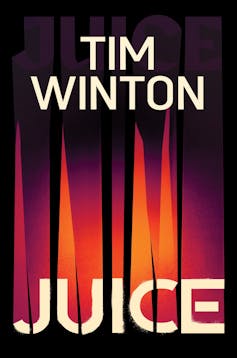Tim Winton goes cli-fi – his dystopian novel Juice breaks new ground to face the climate emergency
- Written by Per Henningsgaard, Senior Lecturer, Professional Writing and Publishing, Curtin University

When I got my first job in publishing in New York City, the managing editor offered me the following advice about reading the slush pile for potential new acquisitions: “Imagine you acquire the manuscript and publish the book. Now, can you think of five people you would recommend this book to because you know they would enjoy reading it, and what would you say to get them interested?”
It turns out, coming up with compelling reasons for five people is harder than it sounds. Ever since, this has been one of my benchmarks for judging a book’s worthiness. It reminds me to think about how real readers might respond to a book and the varied reasons that compel them.
Since finishing Tim Winton’s ambitious and surprising new novel Juice, I have found reasons to recommend it to my rock-climbing buddy, a poet, my mother-in-law, a university colleague who teaches creative writing, and a geologist who works in Western Australia’s resources industry.
Review: Juice – Tim Winton (Hamish Hamilton)
It has been six years since Tim Winton’s last novel. In that time, he has published only one book: a collection of scripts titled Three Plays. That is a remarkably quiet period for Winton, who published his first book in 1982 and more than 30 books since, averaging a book every 1.4 years.
He has won Australia’s highest literary honour, the Miles Franklin Literary Award, four times – tying with Thea Astley for the most wins (though two of Astley’s wins were shared; Winton’s were all solo wins). He first won the award in 1984 for Shallows, and most recently in 2009 for Breath. His last novel, The Shepherd’s Hut, was shortlisted for numerous awards and won the Voss Literary Prize, which is judged by the Australian University Heads of English.


















